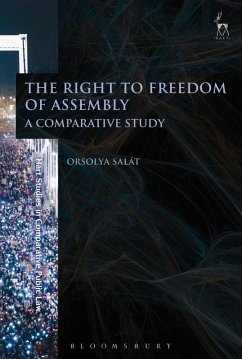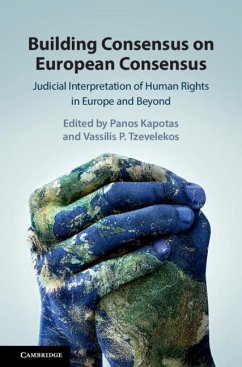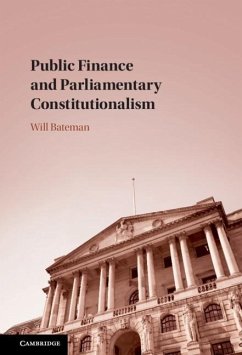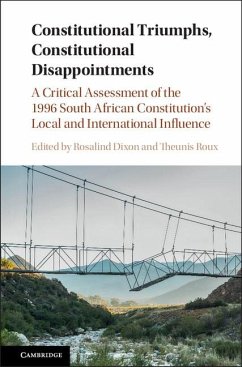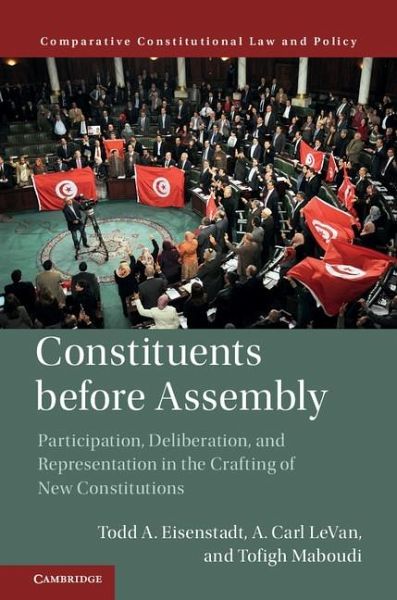
Constituents Before Assembly (eBook, ePUB)
Participation, Deliberation, and Representation in the Crafting of New Constitutions

PAYBACK Punkte
8 °P sammeln!
Under what circumstances do new constitutions improve a nation's level of democracy? Between 1974 and 2014, democracy increased in seventy-seven countries following the adoption of a new constitution, but it decreased or stayed the same in forty-seven others. This book demonstrates that increased participation in the forming of constitutions positively impacts levels of democracy. It is discovered that the degree of citizen participation at the 'convening stage' of constitution-making has a strong effect on levels of democracy. This finding defies the common theory that levels of democracy res...
Under what circumstances do new constitutions improve a nation's level of democracy? Between 1974 and 2014, democracy increased in seventy-seven countries following the adoption of a new constitution, but it decreased or stayed the same in forty-seven others. This book demonstrates that increased participation in the forming of constitutions positively impacts levels of democracy. It is discovered that the degree of citizen participation at the 'convening stage' of constitution-making has a strong effect on levels of democracy. This finding defies the common theory that levels of democracy result from the content of constitutions, and instead lends support to 'deliberative' theories of democracy. Patterns of constitutions are then compared, differentiating imposed and popular constitution-making processes, using case studies from Chile, Nigeria, Gambia, and Venezuela to illustrate the dynamics specific to imposed constitution-making, and case studies from Colombia, Ecuador, Egypt, and Tunisia to illustrate the specific dynamics of popular constitution-making.
Dieser Download kann aus rechtlichen Gründen nur mit Rechnungsadresse in A, B, BG, CY, CZ, D, DK, EW, E, FIN, F, GR, HR, H, IRL, I, LT, L, LR, M, NL, PL, P, R, S, SLO, SK ausgeliefert werden.




